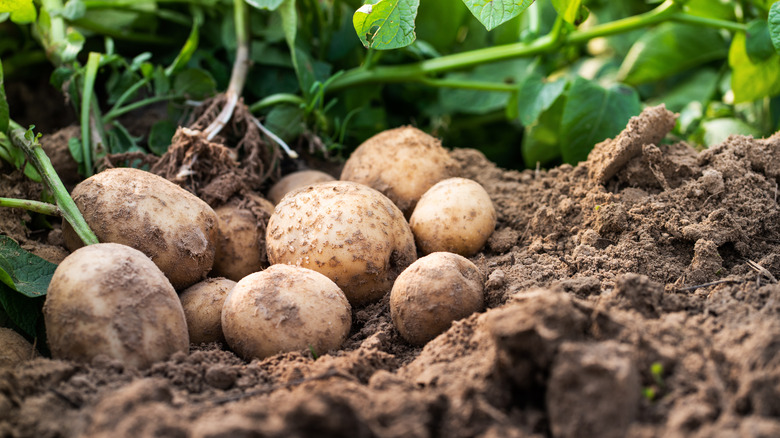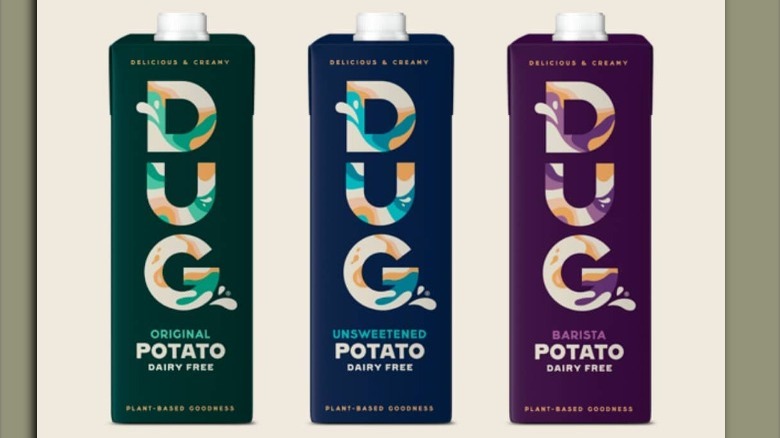What You Need To Know About Potato Milk
We may receive a commission on purchases made from links.
The plant-based milk industry has grown significantly in recent years, and is showing no signs of slowing down. Whether consumers are choosing animal-free products because they believe they are a healthier alternative to cow's milk or because it's been seen that plant-based milk is more sustainable and better for the environment, all signs indicate that consumers will continue to purchase these products in the years to come, according to Food Dive who points to current data that shows that "four in 10 adults in the US lives in a home where someone regularly uses them."
Statista reports that, in 2020, Americans spent $22.6 billion on plant-based milks further estimating that by 2026, this segment will grow to become a $40 billion industry. The site further notes that almond milk, coconut milk, rice milk, and soy milk are the best-sellers in the category, but non-dairy alternatives can also be made with hemp seeds; nuts such as cashews or peanuts; or grains including oats and barley.
But the latest entrant to the marketplace might pose the most significant change to the vegan milk space, according to Food & Wine, who is touting the benefits of potato milk.
According to the article, the idea for potato milk came about in 2017 when Eva Tornberg, a food researcher at Lund University in Sweden announced that she'd developed a method to extract a surprisingly milk-like beverage from the humble star of so many side-dishes. The rich and creamy result came from blending this common root vegetable with rapeseed oil and heating it. Tornberg's potato milk is now sold in some parts of the world under the brand name DUG.
Potato milk has unique health and environmental benefits
Potato milk has environmental advantages, compared to other "milk" crops, with Food & Wine calling it perhaps "the most climate-friendly dairy alternative yet." According to DUG, that's because potatoes require less land to grow on than do oats, and less water to nurture than almond trees.
Furthermore, Tornberg's formulation for potato milk offers functional health benefits that other vegan milks don't, says Food & Wine. Most notably the fatty acid known as omega-3, that is mostly found in fatty fish, and, according to Cleveland Clinic, may reduce the risk of heart attacks and strokes by lowering triglyceride levels and preventing the buildup of plaque in the arteries. Beyond fish, omega-3s are not easy to find in food, but are abundant in ingredients like flaxseed oil and rapeseed oil, which is where Tornberg's proprietary potato milk — with its rapeseed oil blend — edges out other plant-based milks.
The shelf-stable product also claims to be gluten-free, nut-free, and soy-free, and has no added sugar (although it does contain fructose and sucrose, according to its Amazon description for the original and barista blends; the unsweetened version does not have these ingredients). Of its three varieties — original, unsweetened, and a barista blend — the latter is designed for foaming. The original formula, according to DUG's website, has about 39 calories and 1.5 grams of fat per serving.
There's no word yet on when this potato milk will be available in the US on grocery store shelves, says Food & Wine. For now, it's sold only in parts of Sweden and China, and in the UK through Amazon.

